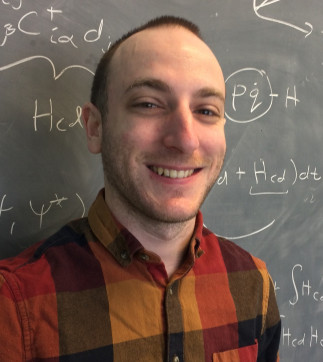Higher-order topological insulators under strong magnetic fields
Benjamin A. Levitan
Physics Department
McGill University
superviser: Tami Pereg-Barnea
Présentation en anglais
Vidéoconférence, Zomm #: 892019835 (Zoom link)
Lorsque demandé, indiquer 'zéro zéro deux quatre sept deux' en chiffre.
Abstract: The family tree of topological insulators has blossomed vigorously since their initial prediction and discovery in the 2000s. Higher-order topological insulators are the youngest branch on this tree. Like their more familiar (first-order) cousins, these materials are fully-gapped insulators in the bulk. Their “higher-order” topological nature is reflected in their bulk-boundary correspondence: in D spatial dimensions, an n-th order topological insulator will have in-gap states localized to (D-n)-dimensional pieces of its boundary, protected by a combination of symmetry and topology.
We study the response of a three-dimensional second-order topological insulator (with one-dimensional chiral metallic “hinge” modes) to an applied magnetic field. We derive an effective surface theory which accurately captures several key qualitative features of its underlying bulk lattice model, including massive Dirac fermions, Landau levels, and chiral hinge modes. We find that the full lattice model predicts a lowest Landau level closer to zero energy than would be expected from the surface theory. As a result, within the surface gap, there exist different regions of energy, within which either one or two chiral hinge modes propagate in either direction. This directly leads to an observable magnetotransport signature: as one scans across the surface gap, the differential conductance of a rectangular nanowire steps between one and two conductance quanta.
Ref: B.A. Levitan and T. Pereg-Barnea, arXiv:2004.05652 [cond-mat.mes-hall], 2020 (with referees @ PRR)

